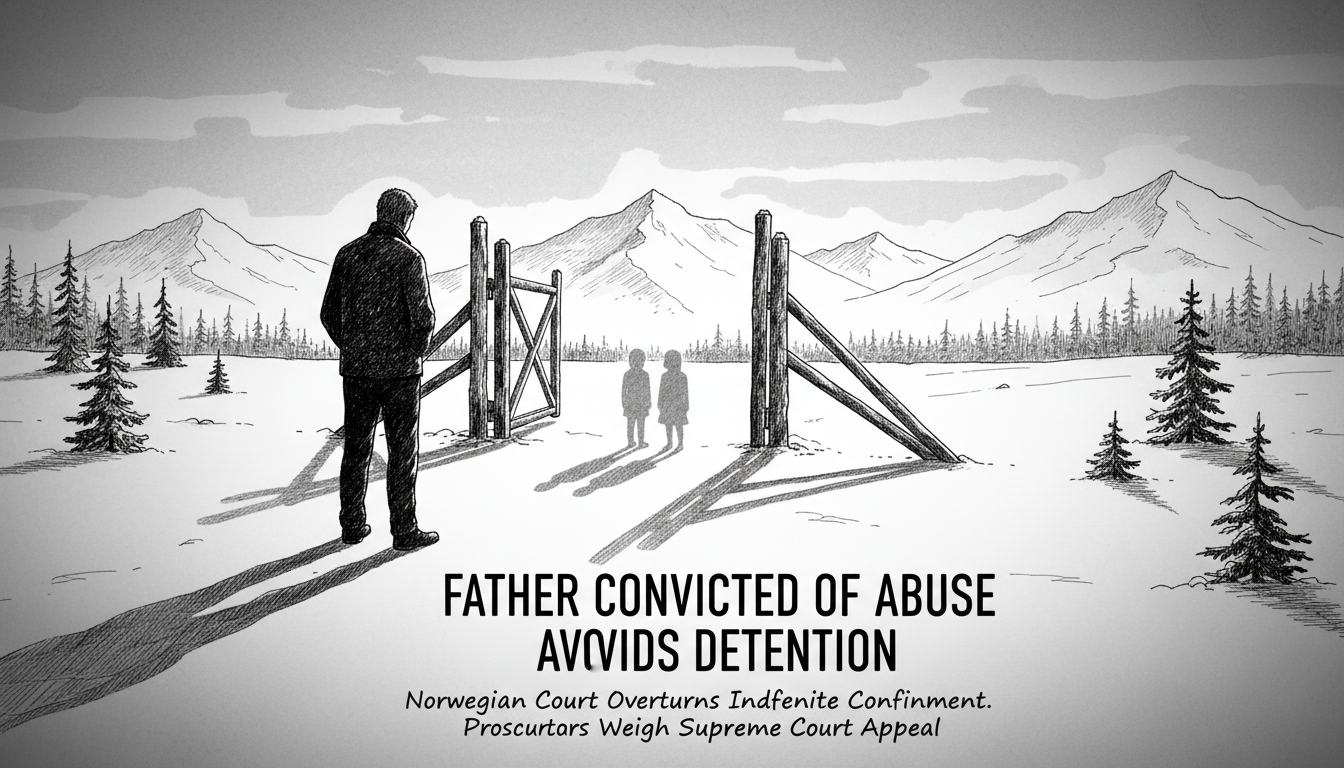A Norwegian man convicted of sexually abusing his children will not face preventive detention after winning his appeal. The Court of Appeal overturned the lower court's decision that would have kept him indefinitely confined.
The man and his former cohabitant were originally sentenced to preventive detention in June for sexual abuse against their children. The district court had found the man guilty of at least 100 abuse incidents spanning four years, plus possession of illegal material.
Now the appeals court has ruled that preventive detention conditions were not sufficiently met. The prosecution had sought eleven years of preventive detention for the man and six years for the woman.
Preventive detention represents Norway's most severe punishment. It applies when regular prison sentences cannot adequately protect society. Courts impose it only for serious crimes violating others' lives, health, or freedom. The sentence requires clear danger of repeat offenses.
This indefinite detention can extend in five-year increments as long as courts deem necessary. Still, minimum terms are set, and release follows progression from high-security to low-security prisons through parole.
Defense attorney Tore Müller Famestad stated his client strongly disagreed with the original preventive detention ruling. He said the convicted man feels very satisfied that the appeals court agreed preventive detention was unwarranted.
The prosecution now faces a two-week deadline to decide whether to appeal to the Supreme Court. State prosecutor Johan Petter Bærland confirmed they're considering their options.
The case began when child protection services reported the abuse to police. Authorities initially closed the investigation due to insufficient evidence. After child services reported again two months later, police conducted specialized interviews with one child. Officers arrested both parents days later.
The abuse occurred in the defendants' home. The children received instructions not to disclose the abuse to others. Each convicted parent has their own child who suffered abuse in the case.
The woman's defense attorney declined to comment on the appeals court decision. Both defendants had appealed their original sentences from the district court.
This case highlights Norway's careful approach to preventive detention. The legal system reserves this extreme measure for cases demonstrating clear ongoing danger to society. The appeals court determined this threshold wasn't crossed despite the serious nature of the crimes.
Norwegian courts balance punishment with rehabilitation even in severe cases. The rejection of preventive detention suggests the court sees potential for rehabilitation and reduced future risk. This reflects Norway's emphasis on evidence-based sentencing rather than purely punitive measures.
The case continues through the legal system as both sides weigh further appeals. The non-final judgment leaves room for potential Supreme Court review if prosecutors challenge the appeals court's interpretation of preventive detention requirements.
